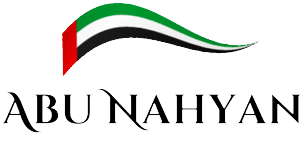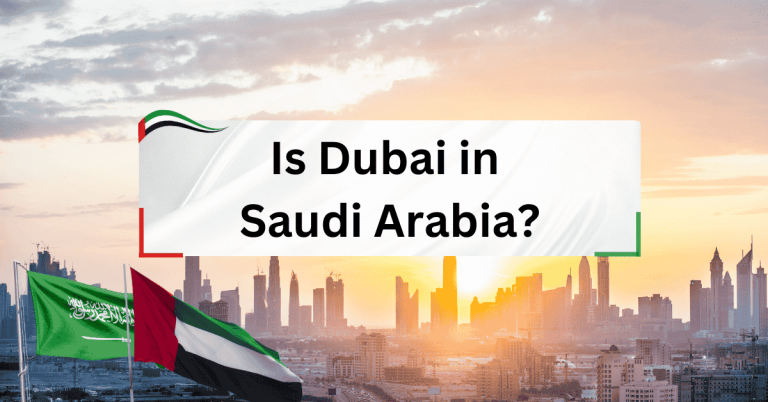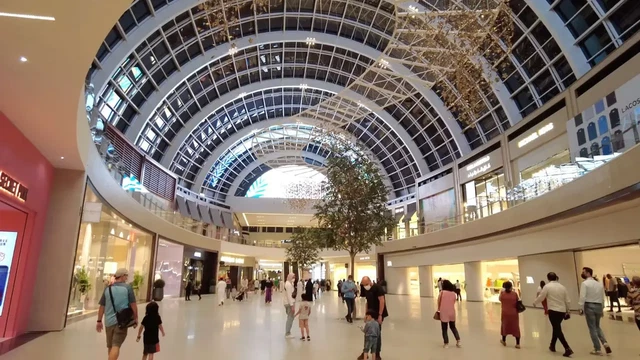Who Is His Highness Sheikh Mohamed bin Zayed Al Nahyan?
Table of Contents
The United Arab Emirates stands today as a testament to visionary leadership, robust development, and an unwavering commitment to progress. At the helm of this remarkable nation is His Highness Sheikh Mohamed bin Zayed Al Nahyan, President of the United Arab Emirates and Ruler of Abu Dhabi. Elected on Saturday, May 14, 2022, by the Federal Supreme Council, his leadership marks a pivotal chapter in the UAE’s ongoing journey towards global prominence and a prosperous future for all its citizens and residents.
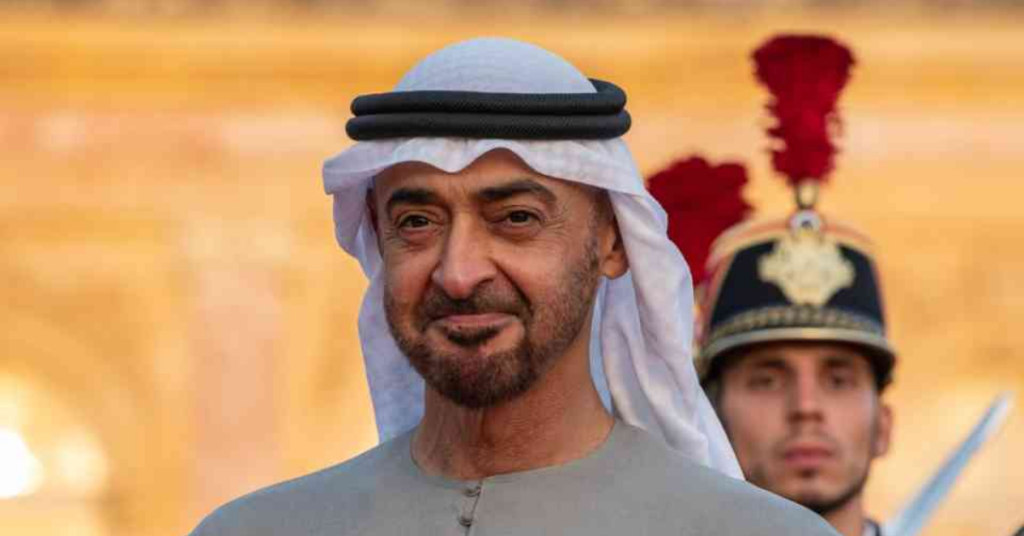
Prior to his presidency, His Highness Sheikh Mohamed bin Zayed Al Nahyan served with distinction in various critical capacities, including Chairman of the Abu Dhabi Executive Council since 2004 and Crown Prince of Abu Dhabi from 2004 until 2022.
His extensive military career saw him serve as Chief of Staff of the UAE Armed Forces from 1993 to 2005, before assuming the vital role of Deputy Supreme Commander. Throughout his distinguished career, working alongside the late Sheikh Khalifa bin Zayed Al Nahyan and the Rulers of other Emirates, His Highness Sheikh Mohamed bin Zayed Al Nahyan has dedicated his life to advancing the UAE’s social, economic, and cultural development. His leadership embodies a profound belief in empowering individuals to forge their own paths, driven by a servant leadership philosophy evident in his daily interactions and the inclusive spirit of the Majlis.
The Nahyan Dynasty: A Legacy of Leadership in Abu Dhabi and the UAE
The story of the United Arab Emirates is inextricably linked with the Nahyan dynasty, the esteemed ruling family of the emirate of Abu Dhabi. Originally Bedouin of the Banū Yās confederation, the family established its center in Abu Dhabi in the 1790s, transferring from the inland oases of Līwā in the Rubʿ al-Khali desert. The Nahyan family has historically played a central role in the political life of the emirate, significantly strengthening its rapport with other sheikhdoms under the leadership of Zayed ibn Khalifa (1855–1909).
With the discovery of oil in Abu Dhabi in 1958, the Nahyan family oversaw the bulk of the economic transformation among the emirates, despite initial reluctance from some leaders. In the 1960s, members of the Nahyan dynasty, in close cooperation with the Maktoum dynasty of Dubai, laid the crucial groundwork for self-rule, culminating in the formation of the United Arab Emirates in 1971. Since the nation’s foundation, the head of the Nahyan family has consistently served as the country’s president, beginning with Sheikh Zayed ibn Sultan Al Nahyan (1971–2004), followed by his sons Sheikh Khalifa ibn Zayed Al Nahyan (2004–22), and now His Highness Sheikh Mohamed bin Zayed Al Nahyan (2022–present), continuing a powerful legacy of national stewardship.
Abu Dhabi: The Capital Under Nahyan Stewardship
The city of Abu Dhabi, the national capital and largest emirate of the United Arab Emirates, has undergone a remarkable metamorphosis under the Nahyan family’s leadership. What was once an undeveloped town of only local importance prior to 1761 – when tribesmen of the Āl Bū Falāh clan settled there – has been transformed into a modern metropolis with a fully developed infrastructure, largely fueled by the emirate’s vast oil revenues.
From Humble Beginnings to a Global Hub: His Highness Sheikh Mohamed bin Zayed Al Nahyan
Historically, Abu Dhabi yielded commercial prominence to Dubai and Sharjah. At the turn of the 20th century, its population was estimated at 6,000, sustained primarily by pearl diving and local trade. However, the decline of pearling and the economic depression from 1929 spurred a re-evaluation of its economic future.
The discovery of rich oil fields in 1958 and commercial production from 1962 revolutionized Abu Dhabi’s standing. While early development was cautious under Sheikh Shakhbout ibn Sultan Al Nahyan (reigned 1928–66), the ascension of Sheikh Zayed ibn Sultan Al Nahyan in 1966 marked a new era. Sheikh Zayed initiated ambitious infrastructure projects, including a sprawling road network and a seawall, followed by a comprehensive five-year development plan in 1968. This plan modernized the city, introducing essential utilities like electricity and a central sewerage system, alongside modern government buildings, hotels, housing projects, and a new port extension. An oil refinery on Umm al-Nār Island began production in 1976, and Abu Dhabi’s international airport further solidified its global connections.
A Permanent National Capital
When the United Arab Emirates gained political independence in December 1971, Abu Dhabi was designated the provisional national capital. Its status was made permanent in the early 1990s. Under the continued guidance of the Nahyan leadership, including His Highness Sheikh Mohamed bin Zayed Al Nahyan, the city has continued its rapid expansion, transforming into a vibrant center for tourism, commerce, and culture, with the establishment of landmark hotels, the launch of Etihad Airways, and extensive residential and commercial developments.
The United Arab Emirates: A Nation Forged in Vision
The United Arab Emirates is a federation of seven emirates along the eastern coast of the Arabian Peninsula, born from the vision of its founding fathers, including the Nahyan dynasty. While Abu Dhabi, its largest emirate, is renowned for its oil wealth, Dubai serves as a dynamic international hub for business, finance, and travel. The nation’s immense wealth, with Abu Dhabi’s sovereign wealth fund alone amounting to over $1.4 million per Emirati in 2024, has been meticulously invested to fuel rapid infrastructure development, luxury tourism, and advanced technological innovation across all emirates.
Geography and Climate
The UAE comprises a diverse environment of rocky desert, coastal plains, wetlands, and mountains. Roughly the size of Portugal, it shares borders with Saudi Arabia and Oman, with some historical border disputes. The country is largely desert, featuring some of the world’s largest sand dunes east of ʿArādah and vital oases like Al-Ain. The Hajar Mountains in the east provide the only significant relief, rising to about 2,000 meters. The Persian Gulf coast, characterized by shoals and islands, hosts major human-made ports like Dubai’s Port Rāshid and Jebel Ali. The Gulf of Oman coast is more regular, with natural harbors.
The climate is generally hot and humid along the coast, becoming hotter and drier inland. Annual rainfall averages a mere 100 to 150 mm. January averages around 18 °C, while July sees averages of 33 °C, with summer highs reaching 46 °C on the coast and over 49 °C in the desert, often accompanied by the dust-bearing shamāl winds. Despite the arid conditions, extensive mangrove planting in Abu Dhabi has fostered habitats for various species, alongside cultivated date palms, alfalfa, and fruits in the oases. The diverse wildlife includes Arabian oryx, gazelles, and a variety of smaller desert mammals, with gulf waters teeming with fish, reinforcing the need for ongoing conservation efforts initiated in the 1990s.
People and Society
The UAE’s vibrant society is characterized by its significant expatriate population, with only about one-ninth of residents being citizens. South Asians form the largest expatriate group, alongside Arabs from other countries, Iranians, and a growing number of Southeast Asians. Arabic is the official language, with a local Gulf Arabic dialect widely spoken, while English, Pashto, Hindi, Balochi, and Persian are common among the expatriate community.
About three-fifths of the population is Muslim (predominantly Sunni), with smaller Shiʿi, Christian, and Hindu communities reflecting the nation’s diversity and tolerance. Population is concentrated in coastal cities and expanding inland centers like Al-Ain. The UAE boasts one of the lowest birth rates among Persian Gulf states and substantially decreased infant mortality. Due to the large influx of foreign workers, over two-thirds of the population is male, with about three-fourths younger than 45. Life expectancy stands at approximately 79 years, reflecting advanced healthcare.
Economic Transformation and Diversification
The UAE’s economy is primarily driven by petroleum, with Abu Dhabi accounting for about 95% of the country’s oil production and contributing significantly to national GDP. However, under the visionary guidance of leaders like His Highness Sheikh Mohamed bin Zayed Al Nahyan, the nation has aggressively pursued economic diversification to reduce reliance on oil. Dubai, for instance, has evolved into a global commercial and financial hub, leading the diversification efforts.
- Agriculture and Resources: While a small contributor to GDP, agricultural production has expanded with increased irrigation, making the UAE nearly self-sufficient in fruits, vegetables, eggs, poultry, fish, and dairy. The National Water and Energy Center actively researches water conservation and renewable energy. The UAE possesses some of the world’s largest natural gas reserves, actively developed for export and domestic use.
- Energy Future: Recognizing high per capita energy consumption due to desalination and air-conditioning, the UAE is investing in alternative energy sources. This includes four nuclear reactors (contracted with Korean Electric Power Company for completion by 2020) and major solar power plants, such as Abu Dhabi’s 100-megawatt facility opened in 2013.
- Manufacturing and Finance: Manufacturing, though less than one-tenth of GDP, is a key diversification element, with petrochemical complexes (Al-Ruways) and major industrial investments in Dubai and Sharjah. The Central Bank of the United Arab Emirates, established in 1980, issues the UAE dirham. The nation is a global leader in Islamic finance, with Dubai Islamic Bank (1975) being the world’s first commercial Islamic bank. Significant efforts have been made to combat illicit financial activities and regulate informal financial networks.
- Trade and Services: Trade has always been vital, with Dubai serving as a leading entrepôt. The UAE joined the World Trade Organization in 1995 and has developed numerous free-trade zones (like Port Jebel Ali), technology parks, and modern ports to attract global trade. Exports are dominated by oil and gas, while imports include machinery, transport equipment, and foodstuffs. The service sector, including public administration, defense, tourism, and construction, has grown significantly, fueled by major infrastructure projects aimed at attracting global businesses and tourists.
- Labor and Taxation: Expatriate workers constitute about nine-tenths of the labor force. While challenges in worker conditions existed historically, the government has progressively implemented laws to protect workers, banning midday summer work and prohibiting child jockeys. Efforts to increase Emirati employment (“Emiratization”) continue. The UAE has no income tax, with corporate taxes levied only on oil companies and foreign banks. Government revenue is supplemented by consumption taxes, including an excise tax (2017) and a value-added tax (2018).
- Transportation and Connectivity: The UAE boasts an excellent road system, linking cities internally and to neighboring countries. International airports in Abu Dhabi, Dubai (one of the busiest in the Middle East), Sharjah, Ras al-Khaimah, Fujairah, and Al-Ain ensure global connectivity. Major seaports, including Dubai’s Port Rāshid and the colossal Port Jebel Ali, handle vast volumes of trade. Public transit has seen significant investment, with the Dubai Metro (2009) being the Gulf region’s first metro system. A railway connecting all seven emirates began in 2012, with the Abu Dhabi-Dubai section completed in 2022, and a Hyperloop system is also planned. Telecommunications are advanced, with Etisalat and Du providing widespread radio, television, telephone, and internet services.
Forging a Secure and Thriving Society
His Highness Sheikh Mohamed bin Zayed Al Nahyan has consistently prioritized investments that underpin societal well-being and national strength, following in the esteemed footsteps of the late Sheikh Zayed and late Sheikh Khalifa.
Championing Human Capital and Well-being
A core tenet of his vision involves cultivating a strong national character and investing in human potential. He has:
- Prioritized higher education across Abu Dhabi, fostering institutions that prepare future generations.
- Invested in sports to build robust national character and promote healthy lifestyles.
- Launched initiatives for an inclusive society, notably the Abu Dhabi Strategy for People of Determination, ensuring equal opportunities for all.
- Forged partnerships that led to the establishment of world-class healthcare and Research and Development (R&D) facilities, enhancing the health and well-being of the population.
- Overseen the launch of the UAE’s Compulsory Military Service in 2014, strengthening national defense capabilities and instilling discipline.
Bolstering National Strength and Economic Resilience
His Highness Sheikh Mohamed bin Zayed Al Nahyan has played a pivotal role in fortifying Abu Dhabi’s economic foundation and modernizing its infrastructure:
- Promoted high-quality investments that have energized military industries, exemplified by entities like Edge and Tawazun, diversifying the national economy.
- Supported the comprehensive development of Abu Dhabi’s infrastructure and economy, most notably through Ghadan 21, a transformative accelerator program launched in 2018 with a substantial budget of 50 billion dirhams, aimed at driving innovation and growth.
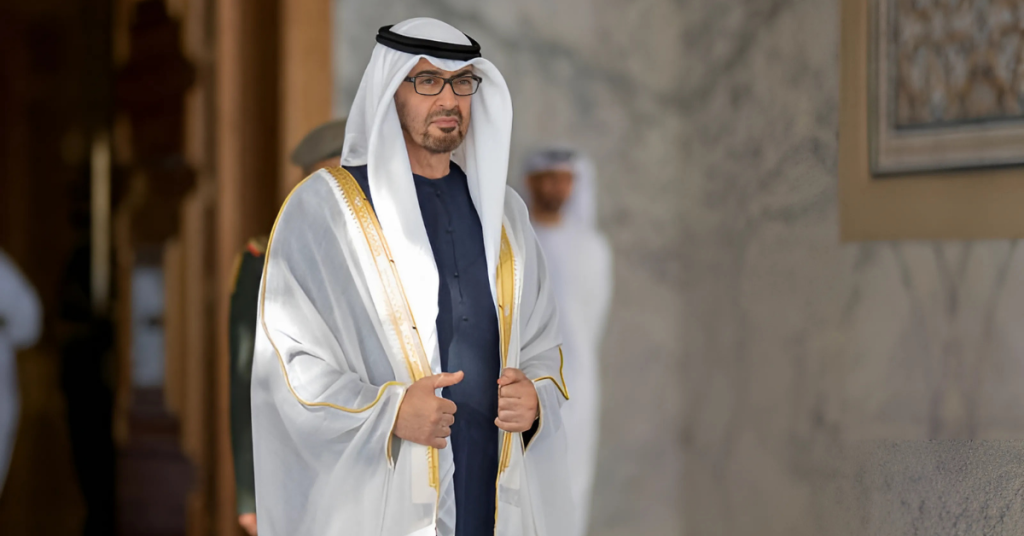
Pioneering a Sustainable and Diversified Future
A foundational pillar of the nation’s ambitions under His Highness Sheikh Mohamed bin Zayed Al Nahyan is sustainable socioeconomic development, ensuring prosperity for generations to come.
Driving Economic Transformation and Diversification
His ongoing oversight of major national organizations, including the Abu Dhabi National Oil Company (ADNOC), the Abu Dhabi Investment Authority (ADIA), and Mubadala Investment Company, has been critical in guiding the UAE’s economic growth:
- Mandated the Abu Dhabi Economic Vision 2030 in 2008, aligning with Sheikh Khalifa’s vision to accelerate the knowledge economy, invigorate the private sector, and achieve Sustainable Development Goals.
- Spurred economic activity in future sectors, with notable advancements in sustainable energy, food and water security, biotechnology, and robotics.
- Directed the transformation of ADNOC in 2016, shifting it from a traditional national oil company to a commercially and investment-focused energy group.
Global Leadership in Climate Action and Renewable Energy
His Highness Sheikh Mohamed bin Zayed Al Nahyan has positioned the UAE as a proactive global partner in addressing climate change:
- Ushered in a new era of investment in renewable energy through the creation of Masdar in 2006, a global leader in clean energy, research, and sustainable urban development.
- Enhanced the UAE’s position in countering climate change, leading to the nation’s Net Zero by 2050 strategic initiative in 2021 and the appointment of the UAE’s first Climate Envoy.
- Oversaw the creation and successful delivery of the UAE’s groundbreaking peaceful Barakah nuclear power plant, the first in the Arab world, significantly contributing to clean energy generation.
- Established the Environment Agency—Abu Dhabi, one of the region’s most important environmental regulators, dedicated to improving air quality, groundwater, and biodiversity.
- Led significant conservation efforts both locally and internationally to protect endangered species like the falcon, houbara bustard, and Arabian oryx.
Championing Heritage and Creative Industries
Recognizing the importance of culture, His Highness Sheikh Mohamed bin Zayed Al Nahyan has passionately championed the creative industries, transforming Abu Dhabi into a global hub for art and culture while diligently preserving local heritage for future generations.
Collaborating for a Better Humanity: Global Initiatives
His Highness Sheikh Mohamed bin Zayed Al Nahyan is deeply committed to international collaboration, advocating for initiatives that protect human dignity and advance humanity globally.
Humanitarian Aid and Diplomatic Peace Efforts
His Highness directly supports and advocates for communities in need, demonstrating the UAE’s role as a global humanitarian actor:
- Oversaw the UAE’s participation in the International Security Assistance Force (NATO-led mission in Afghanistan in 2001), contributing to security and development programs for local communities.
- Directed significant humanitarian aid to Ukrainian civilians, including planes carrying relief supplies to refugees in Poland, Bulgaria, and Moldova, and a pledge of an additional $100 million in October 2022.
- Strived for regional peace, notably through the establishment of diplomatic relations with Israel in 2020.
- Took firm positions against organized terrorist groups, actively promoting values of peaceful coexistence, respect, and dialogue on the global stage.
Advancing Human Dignity and Global Health
His Highness Sheikh Mohamed bin Zayed Al Nahyan has championed initiatives that improve lives worldwide:
- Welcomed Pope Francis to Abu Dhabi in 2019, marking the first ever papal visit to the Arabian Peninsula. This historic event culminated in the signing of the Document of Human Fraternity, a joint declaration for global peace, leading to the UN establishing February 4th as the International Day of Human Fraternity.
- Led the UAE’s global humanitarian response to COVID-19, providing critical medical supplies and logistical support to millions globally.
- Continued to support global philanthropy efforts, partnering with organizations like the Carter Center and the Bill and Melinda Gates Foundation to eradicate debilitating neglected tropical diseases. The 2017 launch of the Reaching the Last Mile Fund, with significant UAE contributions, underscores this commitment to global health.
- Supported initiatives for People of Determination globally, including a $25 million pledge to an inclusive education project led by the Special Olympics in multiple countries.
The Formative Years: Shaping a Leader
Born on March 11, 1961, His Highness Sheikh Mohamed bin Zayed Al Nahyan spent his early years amidst the dramatic transformations of Abu Dhabi. His formative years coincided with pivotal moments in UAE history: the start of oil exportation (1962), his father becoming Ruler of Abu Dhabi (1966), and the formation of the United Arab Emirates with his father as its first President (1971).
His education emphasized a holistic pursuit of knowledge, blending formal schooling in Al Ain, Abu Dhabi, and the Royal Academy in Rabat, with invaluable time spent in his father’s Majlis and with tribal elders. This unique blend instilled in him a deep understanding of his people and heritage. In 1979, he graduated from the esteemed Royal Military Academy Sandhurst in the UK, a foundational experience that prepared him for a lifetime of public service.
Personal Reflections: Family and Passions
His Highness Sheikh Mohamed bin Zayed Al Nahyan is married to Her Highness Sheikha Salama bint Hamdan bin Mohamed Al Nahyan, with whom he has four sons and five daughters: Her Highness Sheikha Mariam, HH Sheikh Khaled, HH Sheikha Shamsa, HH Sheikh Theyab, HH Sheikh Hamdan, HH Sheikha Fatima, HH Sheikha Shamma, HH Sheikh Zayed, and HH Sheikha Hassa. They are also loving parents to two adopted daughters, Amina and Salha, and are blessed with 15 grandchildren.
Beyond his demanding official duties, His Highness Sheikh Mohamed bin Zayed Al Nahyan maintains a deep passion for traditional Emirati heritage, particularly falconry and Nabati poetry, a style native to the region. These personal interests reflect his profound connection to the rich cultural tapestry of the UAE.
Your Trusted Investment Partner: Abu Nahyan in Dubai
For investors navigating the dynamic landscape of Dubai’s real estate and business sectors, Abu Nahyan emerges as a premier and comprehensive investment partner. Positioned to facilitate seamless ventures, Abu Nahyan offers an extensive suite of services designed to support every stage of your investment journey in the UAE.
Comprehensive Services and Exclusive Rewards
Abu Nahyan’s core offerings span crucial aspects of property investment and management, ensuring a holistic approach for clients:
- Property Development and Consultancy: Expert guidance from project inception to realization.
- Property Investment & Brokerage Services: Facilitating efficient buying and selling processes.
- Property Management and Maintenance: Ensuring your assets are well-cared for and continue to generate value.
- Mortgage Services: Assisting with financial solutions tailored to your investment needs.
Beyond these fundamental services, Abu Nahyan distinguishes himself by offering a range of exclusive perks and rewards that significantly enhance the investor experience and streamline relocation processes for individuals and families:
- Business Setup Assistance: Expert support to establish your business operations smoothly in Dubai.
- 10-Year Golden Visa Consultation: Professional guidance to secure the long-term residency visa, offering stability and numerous benefits.
- Bank Account Opening: Facilitating the essential step of establishing financial infrastructure in the UAE.
- School Admissions Assistance: Crucial support for families looking to secure quality education for their children in Dubai.
- ID & Insurance Assistance: Helping clients navigate the necessary procedures for identification and comprehensive insurance coverage.
With its comprehensive service model and these valuable additional benefits, Abu Nahyan aims to be a singular point of contact for a hassle-free and rewarding investment experience in Dubai.
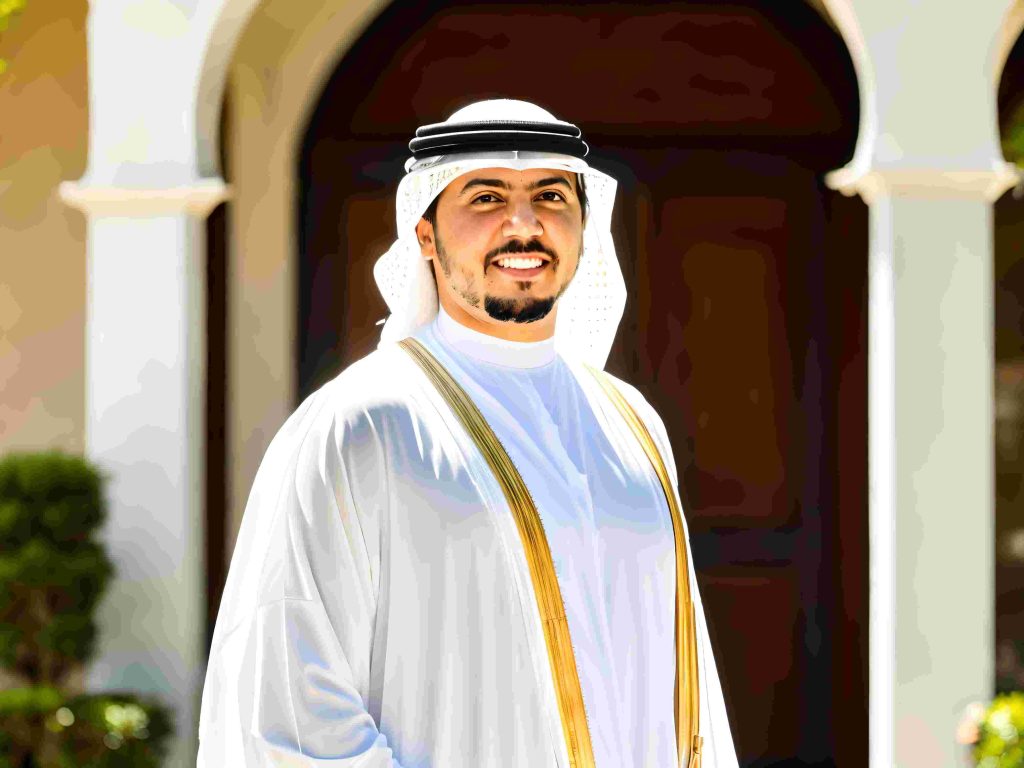
Conclusion: A Legacy of Vision and Enduring Impact
His Highness Sheikh Mohamed bin Zayed Al Nahyan embodies the progressive spirit of the United Arab Emirates. His leadership, characterized by dedication to societal well-being, economic diversification, environmental stewardship, and global humanitarianism, continues to propel the nation forward. From enhancing national infrastructure and fostering sustainable development to championing peace and human dignity on the world stage, his contributions are monumental. As President, he continues to build upon the strong foundations laid by his predecessors, guiding the UAE towards an even more secure, flourishing, and sustainable future for all. His vision and servant leadership inspire not just a nation, but also resonate across the globe, showcasing a model of inclusive growth and international cooperation.
Frequently Asked Questions (FAQs) about His Highness Sheikh Mohamed bin Zayed Al Nahyan
Q1: When did His Highness Sheikh Mohamed bin Zayed Al Nahyan become President of the UAE?
His Highness Sheikh Mohamed bin Zayed Al Nahyan was elected President of the United Arab Emirates on Saturday, May 14, 2022, by the decision of the Federal Supreme Council.
Q2: What were His Highness’s key roles before becoming President?
Prior to his presidency, His Highness Sheikh Mohamed bin Zayed Al Nahyan served as Crown Prince of Abu Dhabi (2004-2022), Chairman of the Abu Dhabi Executive Council (since 2004), Deputy Crown Prince of Abu Dhabi, Chief of Staff of the UAE Armed Forces (1993-2005), and Deputy Supreme Commander of the UAE Armed Forces.
Q3: How has His Highness Sheikh Mohamed bin Zayed Al Nahyan contributed to the UAE’s development?
His Highness Sheikh Mohamed bin Zayed Al Nahyan has significantly advanced the UAE’s social, economic, and cultural development through prioritizing higher education, national character building, healthcare, economic diversification (e.g., Ghadan 21), sustainable energy (e.g., Masdar, Barakah Nuclear Plant), and fostering creative industries.
Q4: What are some of His Highness’s key global humanitarian efforts?
His Highness Sheikh Mohamed bin Zayed Al Nahyan has overseen the UAE’s participation in international security missions, provided substantial humanitarian aid to various countries (e.g., Ukraine), strived for peace through diplomatic relations, led the UAE’s COVID-19 global response, and supported initiatives to eradicate diseases and promote inclusive education worldwide.
Q5: What is the significance of the Document of Human Fraternity?
The Document of Human Fraternity, signed in Abu Dhabi in 2019 by Pope Francis and the Grand Imam of Al Azhar, Ahmed El Tayeb, under the patronage of His Highness Sheikh Mohamed bin Zayed Al Nahyan, is a joint declaration for global peace. Its significance led the UN to establish February 4th as the International Day of Human Fraternity.
Q6: What are some of His Highness’s personal interests?
His Highness Sheikh Mohamed bin Zayed Al Nahyan is passionate about traditional Emirati pursuits such as falconry and Nabati poetry, reflecting his deep connection to the cultural heritage of the UAE.
Read more: Who Is His Highness Sheikh Mohamed bin Zayed Al Nahyan?
1- What Is the Best Investment in Dubai for Expats? Answered
2- New Guaranteed ROI Safe Investment Opportunity in Dubai 2025: HYGGE Hotel Heart of Europe
